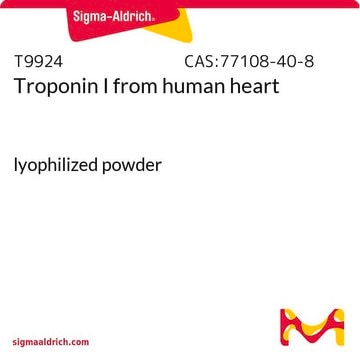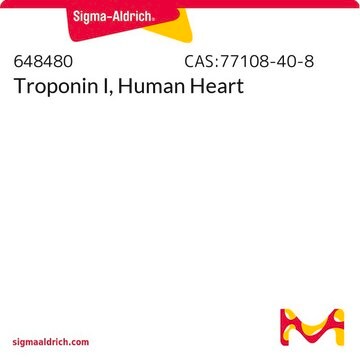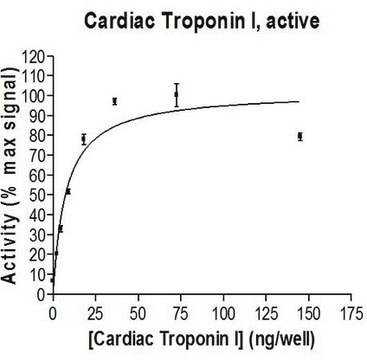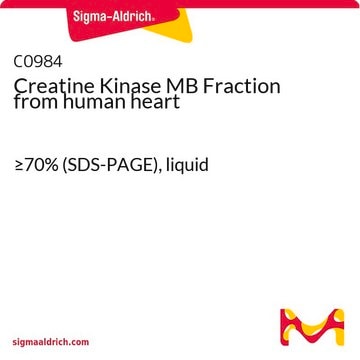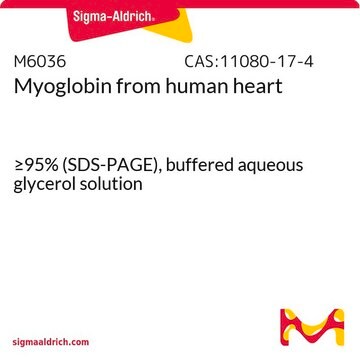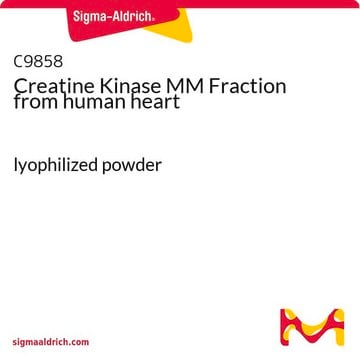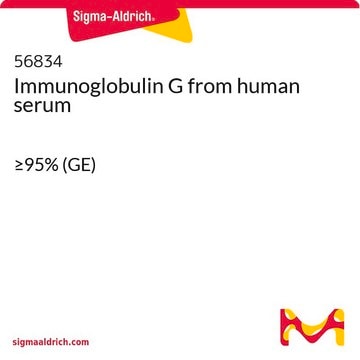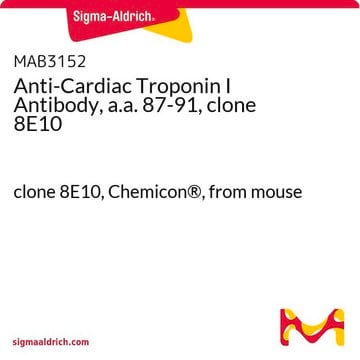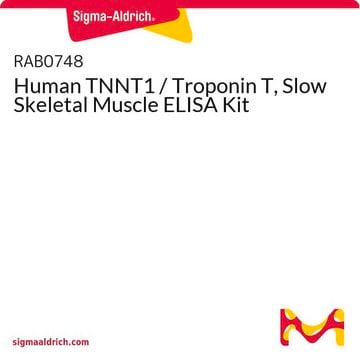T0175
Troponin T from human heart
≥60% (SDS-PAGE), lyophilized powder
Synonym(s):
Tn-T
Sign Into View Organizational & Contract Pricing
All Photos(1)
About This Item
Recommended Products
biological source
human heart
Quality Level
form
lyophilized powder
purified by
affinity chromatography
concentration
≥60% (SDS-PAGE)
technique(s)
ELISA: suitable
solubility
10 mM HCl: 500 μg/mL, clear, colorless
UniProt accession no.
shipped in
dry ice
storage temp.
−20°C
Gene Information
human ... TNNT2(7139)
General description
The cardiac troponin T gene (TNNT2) is located on human chromosome 1 and spans around 17kb. It codes for a 288-amino-acid peptide of 36−39kDa.
Application
Troponin T from human heart has been used in competitive enzyme-linked immunosorbent assay (ELISA) for the quantification of troponin T (TnT).
Biochem/physiol Actions
The tropomyosin-binding subunit of troponin. The cardiac troponin T gene (TNNT2) helps to connect the troponin complex to α-tropomyosin, thereby participates in the modulation of contractile function.
Storage Class Code
11 - Combustible Solids
WGK
WGK 3
Flash Point(F)
Not applicable
Flash Point(C)
Not applicable
Certificates of Analysis (COA)
Search for Certificates of Analysis (COA) by entering the products Lot/Batch Number. Lot and Batch Numbers can be found on a product’s label following the words ‘Lot’ or ‘Batch’.
Already Own This Product?
Find documentation for the products that you have recently purchased in the Document Library.
Customers Also Viewed
A skeletal muscle troponin T specific ELISA based on the use of an antibody against the soluble troponin T (16-31) fragment
Tsitsilonis O E, et al.
Journal of Immunological Methods, 268(2), 141-148 (2002)
Inherited cardiomyopathies
Emery and Rimoin's Principles and Practice of Medical Genetics, 1-38 (2013)
Nikita Sitkov et al.
Micromachines, 12(6) (2021-07-03)
The problems of chronic or noncommunicable diseases (NCD) that now kill around 40 million people each year require multiparametric combinatorial diagnostics for the selection of effective treatment tactics. This could be implemented using the biosensor principle based on peptide aptamers
Our team of scientists has experience in all areas of research including Life Science, Material Science, Chemical Synthesis, Chromatography, Analytical and many others.
Contact Technical Service